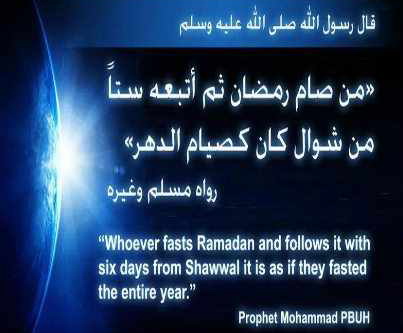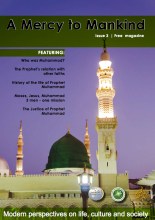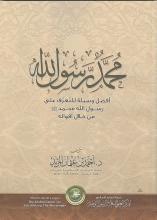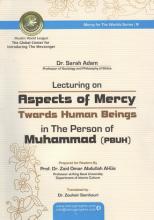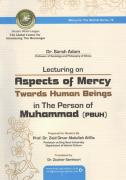The Prophet of Mercy Website
Muslim World League - Global Commission for Introducing the Messenger
Dear audience, we are still on the subject of the Prophet’s mercy in all its aspects, but in another sphere, when his followers have multiplied, and his strength has grown and his victories have come in succession. In such circumstances, dazzling pictures of mercy were drawn in the Prophet’s attitude towards his enemies, which won great admiration and astonishment, perhaps.I must admit that among the reasons for my pursuit of this subject, and my eagerness to consider these events, is what some Western writers have written, that Prophet Muhammad, pbuh, was a tolerant prophet when he was in Mecca, but when he went to Medina, he became a ruler and a head of state, acting like leaders do.[18]Allow me to take you back to Mecca, when Quraish isolated the Prophet, pbuh, his followers and relatives in a valley called the valley of Abu Taleb for three years, during which they were denied food and contact with them to the point that they nearly died together with their women and children, some of them had perhaps been driven by hunger to eat insects and worms.[19]
Days went by and the Prophet migrated to Medina and established a strong state that had great prestige and status. At this time, Thumamah bin Athal, the leader of Bani Hanifah of Najd, embraced Islam and unilaterally decided to support the position of the Prophet, pbuh, and weaken his weak enemies in Mecca, by stopping the export of wheat to Mecca, which is known to be a non-agricultural land.People in Mecca were terror stricken when they were confronted with the ghost of hunger. So they wrote to the Prophet, pbuh, and sent a delegation to beg him to intercede with Thumamah to resume exporting wheat to them.People in Mecca knew that the Prophet, pbuh, was never of a cruel heart or ill tempered. Therefore, they appealed to him, despite their antagonism towards him.
It was as though the Prophet, pbuh, remembered the past years when he and his followers and relatives had been besieged , and his relatives were among those who begged him to intervene, reminding him of the family ties between them, which ties had been absent when they besieged him together with those who were with him. The Prophet’s mercy moved him to write to Thumamah to resume exporting wheat to Quraish.The Prophet, pbuh, could have retaliated in kind and could have left them to suffer hunger, particularly in view of the fact that he had nothing to do with the matter of the ban on export. He was not the one who had ordered the siege and Thumamah had acted on his own initiative without consulting the Prophet, pbuh, when he decided to stop exporting wheat to them.The Prophet’s mercy did not allow him to deal with Quraish on the basis of reciprocity. Thus the scene was repeated when Quraish had faced severe drought that nearly caused them to die of hunger. So, they sent a delegation begging the Prophet, pbuh, to pray to God to lift this drought that had befallen them.
Thus, the Prophet, pbuh, responded to their plea and prayed to God for lifting the drought. His prayer was answered and the great mishap was lifted.[20]In the face of the begging of Quraish, one experiences a feeling of astonishment that is mixed with irony towards Quraish. May be one may laugh; for the Prophet’s adversaries now admit that he is merciful and witness the effects of his mercy. They realize that the Prophet, pbuh, offers mercy on all occasions, and therefore they came begging him to seek to lift the ghost of hunger from them, their women and children, through his prayers and his interceding for them with Thumamah.They were sure he would respond to their pleas, which he did; and yet they maintained their hostility towards him. Here, I would like to remind you again of Professor Aqqad’s statement that people had the audacity to dare to approach greatness despite the fact that they were in need of it. [21]
The Prophet, pbuh, has acted mercifully in an environment that lacks such quality, but he succeeded in benefiting from it in solving his problems with his adversaries. I am sorry to say, dear audience, that such mercy is still lacking in contemporary environments. There are those who preclude people from exercising, experiencing and feeling happy in the exercising of it, when those who trifle with people’s minds and play on their emotions claim that the interests of those people is realized only through killing and destruction, and that their security is jeopardized unless they indulge in indiscriminate killing and destruction.Is it not possible for those who are endowed with wealth and strength to solve their problems, if any, through love and mercy, in which case the strong will feel happy when exercising mercy and the weak will feel happy when benefiting from its benign effects?The Prophet, pbuh, has provided examples for humanity, the exercising of which would result in great happiness.
In this context, I remember a beautiful statement by Descartes to the effect that noble persons are masters of their anger and the haughty are slaves of their desires.[22] No more noble behavior is there than to see mercy guiding the attitudes of the Prophet, pbuh, towards his enemies ! How true is the statement of ethics scholars who say that mercy is not merely a word or feeling that a person feels, but is a form of behavior and a reality that has an objective corollary.[23] Days passed by, but Quraish did not benefit from the attitudes of the Prophet, pbuh. Thus in the Hudaibiyah Truce between the Prophet and Quraish, the latter have stipulated a hard term, which the Muslims felt that insulting.Quraish has stipulated that if any one from Mecca adopts Islam and goes over to Medina to join the Prophet, pbuh, the Prophet, pbuh, should return him to his folks in Mecca, while the opposite will not be the case. Nevertheless, the Prophetm pbuh, agreed to this hard to bear condition.Then a number of young men from Mecca, whi included Abu Baseer, adopted Islam and joined the Prophet, pbuh, in Medina, whereupon Quraish demanded that they be returned to them, and the Prophet, pbuh, asked them to leave Medina, in fulfillment of the terms of the Truce.
Those young men, who had accepted Islam, left Medina but did not return to Mecca. There were less than a hundred of them and they gathered together in a place between Mecca and Medina called Al-Ais and began to intercept the trade caravans of Quraish that were heading towards Syria, killing the men accompanying the caravans and taking their goods. These events almost paralyzed the trade of the people of Mecca, who felt that they were in an unenviable position.Once more, the people of Mecca sent a delegation begging the Prophet, pbuh, to have mercy on them and to require those young men to join him in Medina. So, the Prophet’s adversaries announced in public that they had revoked their insulting condition. The Prophet, pbuh, responded to their request, felt pity for them, and asked the group of young men to leave their position and joinh him in Medina.[24] Quraish has confronted the Prophet, pbuh, and his companions with their arrogance and arbitrary conditions, but the result was their defeat and their coming to him in utter humiliation. But the Prophet, pbuh, responded with mercy when he felt that their livelihood was threatened on account of the paralysis of their trade, and asked the young men not to harass them any more.
Dear audience,
Is it not the case that Prophet Muhammad, pbuh, has fought his enemies with mercy and was victorious in many instances through his mercy? He has fought them by being magnanimous towards them rather than treating them on the basis of reciprocity of enmity. This exercise of mercy has encouraged them to embrace Islam. Thus, Al-Hareth bin Hisham, says, on the day of the conquest of Mecca, that he tried to hide from the Prophet, pbuh, as he felt ashamed of his previous enmity towards him. But then he remembered the Prophet’s generosity and mercy and went to him and proclaimed his conversion to Islam, which made the Prophet, pbuh, very happy.[25]
Another famous episode clearly illustrates what I have said. It took place eight years after the Prophet, pbuh, and his companions were forced to leave Mecca on account of Quraish persecution of them, without anyone of them being able to carry with him any property.There is a moving description of them in the Quran, “(Part of these gains shall be given ) to the poor among those who have forsaken the domain of evil, those who have been driven from their homelands and from their possessions, seeking favor from God and (His) goodly acceptance and who aid (the cause of ) God and of His Apostle: it is they, they who are true to their word. (Al-Hashr, 8) After eight years, the Prophet, pbuh, returned to Mecca with ten thousand of his companions who were fully armed, and entered it with nothing on his mind except mercy. On his way to Mecca, he was told that one of his military commanders, Saad bin Obadah, said that that was the day of carnage and the lawful practice of what was forbidden. But the Prophet, pbuh, said instead that that day was the day of mercy and removed him from command and replaced him with his son, Qais bin Saad, [26].
Dear audience,
You may have wondered, in the face of this wise and merciful step, why he has replaced Saad with his son. Had he replaced him with someone other than his son, he would have felt unhappy and sad. But for him to be replaced by his son must have pleased him, as both father and son would be satisfied. So this step was an act of mercy for both of them, just as it was for all the people of Mecca. It is the simple and crucial mercy that is exercised in all situations.The Prophet entered Mecca and found its people gathered round the Kaaba awaiting their destiny, wondering what the Prophet, pbuh, would do to them, given that they had hurt him, driven him out and killed persons who were the dearest to his heart. Addressing them, the Prophet, pbuh, said, “What do you expect me to do to you?” They said, “what is good, as you are a magnanimous brother and the nephew of a magnanimous brother,” to which he replied, “Go forth, you are free. There is no blame on you today, May God forgive you.” [27]
I remember in this context something I read which was written by certain Western philosophers like Hobbes and Nietzsche, who based morality on the pillars of force. They consider mercy a good thing, because it is an indication of the strength of a person, who exercises mercy towards those who are weaker than him, and is evidence of his disdain to confront the weak as he would confront his strong counterparts.[28] If such persons have read the biography of the Prophet, pbuh, they probably would have rephrased this theory because they would have seen that the Prophet, pbuh, used to confront both the strong counterparts and the weak with mercy. This was evident on many occasions, which we have seen, but which is difficult for many people to appreciate, as it is an unusual attitude in the life of the majority of great men.It was mercy and no other that has prevailed, the mercy that has encompassed all the people of Mecca, with the exception of six or seven, whose killing the Prophet, pbuh, proclaimed to be lawful, in view of their great hostility to the Prophet, pbuh, and to Muslims. But he pardoned most of them when some of his companions interceded on their behalf.The American writer and historian Washington Irving – who is among the foremost Americans who were interested in the Arab civilization and its history – has followed the events of the Prophet’s entry into Mecca and was greatly impressed by the Prophet’s forgiveness of his bitter adversaries, saying, “The behavior of the Messenger of God after his entering Mecca is an indication that he was a Prophet sent to guide humanity, not a victorious leader. For he has shown mercy and pity towards his fellow citizens, although he had acquired a strong position: he has crowned his victory with mercy and forgiveness.[29]
Dear audience,
I have realized that there is a strong motive behind all this mercy, other than what has already been said, namely, the motive of love. I have come to the conclusion that the Prophet, pbuh, was motivated by his love for all God’s creatures, believers, unbelievers, animals and birds.True love performs miracles. The Prophet’s love for his companions goes without saying. But his love for unbelievers was attested in the Quran, in God’s addressing His Messenger, as follows: “Would thou, perhaps torment thyself to death, because they refuse to believe” (Al-Shu’araa, 3), i.e. it is as though you wanted to destroy yourself as a result of your great sadness and sorrow because the unbelievers refused to see the truth.
He was very sad and felt so pitiful for those people because he knew what would become of them if they died without seeing the truth, and therefore God said to him: “Hence, do not waste thyself in sorrowing over them. Verily,God has full knowledge of all that they do” (Fater, 8), i.e. have pity on yourself, Muhammad, you have done your duty to the utmost.I wish my dear audience would look for love in all the various circumstances of the Prophet, pbuh, which we have considered and I am sure you will clearly see it.On the other hand, hatred only serves to destroy humanity, and I leave it to you to consider some of the attitudes of some great men and war mongers, past and present.I wonder if you will find in them indications of love or those of hatred.In these historical hours, and despite the succession of events, the mercy of the Prophet, pbuh, was shown towards one of his close companions, Bilal bin Rabah, a slave in Mecca who was tortured by being made to lie on the burning heat of the sun, on account of his faith, while he kept reiterating: (God is) one, (God is) one, (god is) one. The Prophet felt mercy towards him and remembered his previous suffering, as he entered Mecca and asked Bilal to climb to the top of the Kaaba and call for prayer.
On top of the Kaaba, Bilal raises his voice calling for prayer repeating the attestation to the oneness of God, for which he had been tortured. That was a gesture of honor for Bilal and recognition of his devotion in a society that was so cruel and severe on him.If the mercy of the Prophet, pbuh, towards Bilal, provokes our admiration, his mercy towards Abu Sufian provokes our astonishment, for the latter was hostile towards the Prophet, pbuh, ever since the Prophet, pbuh, began to preach his message of the Quran. Moreover, Abu Sufian was the military leader of Quraish in their wars against the Prophet, pbuh, and his companions. But when Abu Sufian came to the Prophet before he entered Mecca, the Prophet, pbuh, conferred on him certain face-saving privileges out of his mercy towards him.Thus, the Prophet, pbuh, proclaimed to the people of Mecca that whoever entered the house of Abu Sufian shall be safe[30]. This had a great effect on Abu Sufian and was a merciful face-saving measure before the people of Mecca, as those hours were the beginning of the end of Abu Sufian’s leadership.The Prophet, pbuh, had felt that Abu Sufian needed sympathy and mercy on that occasion and he gave them to him. It is quite probable that this merciful attitude of the Prophet, pbuh, towards Abu Sufian, has contributed to the latter’s embracing of Islam and the progress he made together with his family in Islam.
Dear audience,
There occurred an event that is worth mentioning after the Prophet’s victory in Mecca, which confirms what we have said about the Prophet’s mercy. Thus the great victories achieved by the Prophet, pbuh, did not prompt him to try to achieve more victories and to eradicate any force that was still ahead, at any price. Neither was he to exploit his companion’s love of him, nor their desire to fight in order to achieve prestige or to settle a battle.Thus, the Prophet, pbuh, and his companions had besieged, for a period of time, Taef, which had unconquerable strongholds, and many Muslims were wounded at its walls. So the Prophet, pbuh, had mercy on them and ordered the army to lift the siege and leave. This disappointed his people because they were told to leave Taef before capturing it.
The Prophet, pbuh, wanted them to realize that he had taken this decision only out of mercy for them. So he told them to resume the fighting, which they did and many of them were wounded. Thereupon, the Prophet, pbuh, told them that they were leaving the next day, and they were pleased to comply and began to leave, while the Prophet, pbuh, was laughing. However, they asked the Prophet, pbuh, to curse the people of Taef, Thaqif, but the Prophet prayed that God would guide Thaqif and bring them to him.[31]Mercy had a great effect on changing the course of events. This is because the campaign took place after the opening of Mecca, after the Prophet, pbuh, was in full control. It was to be expected, from a military point of view, that the Prophet, pbuh, should insist on defeating Thaqif, regardless of the number of losses, for it is not conceivable that he should win the battle of the capital, Mecca, in which all of Quraish had surrendered, and reach the gates of Taef, without being able to capture it, and that the tribe of Thaqif should be beyond his control.
However, the Prophet, pbuh, was moved by mercy for his followers on account of the wounds they had sustained in their siege of Taef and disregarded their desire to fight. They had their own calculations and the Prophet had his own, namely his mercy for them, as well as mercy for the people of Taef.He had expected that they would surrender and embrace Islam. It was only a matter of time. So why fight and suffer the killing on both sides. So mercy, in this context, was preferable. In point of fact, the expectations of the Prophet, pbuh, came true, for the people of Taef soon came and voluntarily surrendered to him and embraced Islam, and God spared both sides from the evil of further fighting.This, my dear audience, is a rapid round on the cases of war and fighting in the life of the Prophet, pbuh, and I believe that they carry messages of clemency to all people.The first message is that dialogue and mercy should come first, and that war should be the last resort, as the Prophet of Mercy, has done.The second message is that if war is inevitable, let it be a merciful one, as were the Prophet’s wars, in which women and children, and even some who happen to be involved therein, were their fuel, and let its victims be limited as much as possible.
The third message is that war should be a means to bring people together and remove obstacles, as were the wars of the Prophet, pbuh, and not a means to increase division and spread hatred, and not a cause for more wars, whose results are not predictable.I hope humanity would read these messages, for there is a dire need for them, as the present indicates.Although each of the events we have considered seemed to be isolated or ephemeral, they are, nevertheless, cases of the mercy of the Prophet, pbuh, towards humanity. By bringing such attitudes before humanity, and making them binding on his followers, he has laid down a general policy for all humanity, a policy that aims at realizing cooperation and closeness among people.The Prophet, pbuh, has succeeded in realizing these objectives and his followers succeeded in their compliance therewith and in practicing them.It is an invitation to all humanity to contemplate same in the hope that they prove beneficial to all human beings, as they are global lighthouses that are not limited by time or place and are not the property of a certain environment or a certain race.
[1] Dr. Muhammad Bakr Al-Abed, The Discourse of the Quran in Respect of the Prophet’s Battles, tradition 1, p.43, first impression, Dar Al-Gharb Al-Islami, Beirut.
[2] Ibid., Terrorism and Counter Terrorism, p.14
[3] See in this respect, SaHiH al-Bukhari, in the Section on the Conditions of “jihad” and Conciliation, tradition 2731.
[4] See The Biography of the Prophet in the Light of the Quran and the Sunnah, v.2,p.124. In the battle of UHud, a figure of 15 boys is mentioned, ibid., v.2, tradition 383.
[5] Ibn Hisham, The Biography of the Prophet, v.4, p.100.
[6] Muhammad Sadeq Makki, Figures Describing the World, p. 244, first impression, 2006, Riyadh.
[7] Reported by Abu Dawood in his Sunan, tradition No. 2604 and admitted by Al-Albani. See the Series, v.7, v.14338.
[8] Ibn Hisham, The Biography of the Prophet, v.4, p.100; Akram Alomary, The True Biography of the Prophet, v.2, p.503
[9] Al-Aqqd, The Genius of Muhammad, p.45.
[10] Al-Saklabi, The Biography of the Prophet, v.1, p.54.
[11] Al-Aqqad, The Genius of Muhammad, p.60
[12] See SaHiH Al-Bukhari , in the Section on the Traits of Othman, tradition No.3698
[13] Al-Husseinin, The Messenger in Fair Western Eyes, p.88.
[14] Ibid., p.142.
[15] Ibid., p.190.
[16] Ibid., p.104.
[17] Ibid., p,183.
[18] Al-Sheibani, The Messenger in the Eyes of Fair Orientalists, p.292.
[19] Dr. Mahdi Rizqallah, The Biography of the Prophet, pp.217 ff.
[20] Tabari’s Exegesis, v.9, p.235; Al-Baghawi, Features of the Revelation, v.1, p.425.
[21] Al-Aqqad, The Genius of Muhammad, p.13
[22] Descartes, The Emotions of the Soul, pp.98-99.
[23] Dr. Draz, The Constitution of Ethics, p.213.
[24] See SaHih Al-Bukhari, the Book of Terms, tradition No. 4732. See also The Biography of the Prophet: Lessons and Examples, v.2, pp.473 ff.
[25] See Al-Hakem, Al-Mustadrak, v.3, p.277.
[26] Dr. Akran Anbari, The True Biography of the Prophet, v.2, p.477.
27 See Dr. Mahdi Rizqallah, The Biography of the Prophet, p.179. See also Dr. Al-Omari, The Medina Society, p.179
28 Dr. Al-Hofi, Ibid, The Character of the Prophet, p.40.
29 Washington, Ibid, “The Life of Muhammad, p.233.
[30] See Al-Omari, The True Biography of the Prophet, v.2, p.479.
[31] Zad al-Miáad fi hadyi khar al- íbad, v.3/497, SaHiH Muslim, the Book on Jihad and Going to war, ther Section on the Canpaign against Taef, tradition 4620, The True Biography of the Prophet, v.2, p.511.

